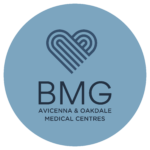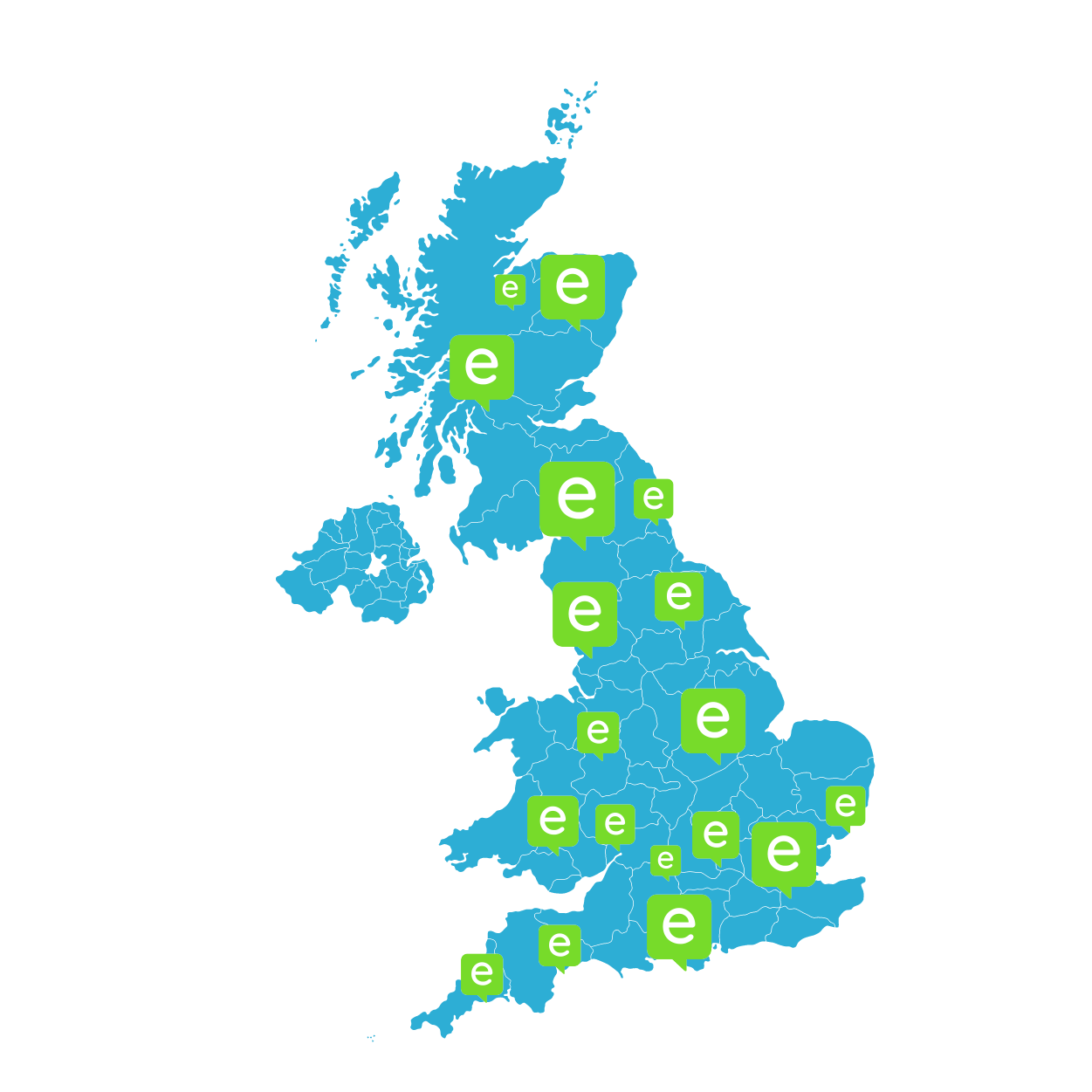Blackwood Medical Group
Key stats

- Patient List size: 14,000
- Launched: June 2020
- Model: Total Triage
Summary:
Blackwood Medical Group originally started using eConsult as an additional but optional service for patients in June 2020. However, they quickly realised that with the pandemic, telephone access was becoming overwhelming and they needed to develop a new appointment system.
They needed a solution that would proactively see them through the pandemic and post-pandemic era, rather than a series of reactive changes that were necessitated by the issues of infection control and social distancing.
We spoke to lead GP Dr Rizwan Hussain about their journey to becoming a digital-first total triage practice in November 2020 and what impact eConsult has had so far.
Blackwood Medical Group serves 14,000 patients across two sites with a varied team of 14 clinicians including GPs, pharmacists and nurses. Before the COVID-19 pandemic of 2020, they offered around 40% of their appointments as ‘book on the day’ with the remainder as pre-bookable appointments 4 weeks in advance. Despite their best efforts, they had very low uptake of telephone consultations but a lot of patients walking or calling in for on the day advice or appointments.
When the pandemic started, like most practices across the country, they moved to a ‘total triage’ model overnight. They stopped pre-bookable appointments and dealt with all patient requests on the day through the telephone, often with very little information about the patient’s needs. Around May 2020, the practice was offered the opportunity to implement eConsult as part of their cluster funding.
Multiple access routes, more challenging to manage
The practice worked quickly to roll-out eConsult by June, carrying out the provided training online with both clinical and administrative teams and redoing their website to position their eConsult offering clearly. The practice decided to offer eConsult as an additional, optional route for patients to contact the practice during lockdown, and advertised this through text messages alongside banners inside and outside of the practice sites.
Advertising this more widely to patients became difficult without the normal patient-to-practice interactions that they had reduced because of the risks of Coronavirus. Patients were no longer coming into the practice because of the lower numbers of face to face appointments. This reduced the opportunity for patients in the waiting room to pick up and read educational leaflets or ask for information about eConsult during conversations with staff.
The practice quickly realised that in creating two entry points to the practice – telephone and eConsult – the workload was more challenging to manage. The huge volumes of calls being generated meant that patients often couldn’t get through to the practice in a timely way. They also struggled with patients not picking up when called back, and found conversations were becoming disjointed because they were happening over multiple days and different mediums. They decided to try a different approach.
“Beforehand patients would walk into the surgery and up to the front desk but now access has changed. This was the way that we felt was best because eConsult is available 24/7 and because of the way we advertised it, we wanted to show our patients that we were open for business, to counteract the narrative in the media. So our message to our patients was ‘start your consultation whenever you want and we’ll pick it up and be back in touch with you.’ We wanted to give them the reassurance that we were actually open.”
Dr Rizwan Hussain
The move to digital-first total triage supported by eConsult
Blackwood Medical Group, supported by their eConsult Transformation Manager, quickly got up and running with using eConsult as their front door to a digital-first approach to total triage in November 2020. They spoke to other practices who had either utilised a digital-first approach from the start or who like them had transitioned from a hybrid model. Being able to ask questions about the ins and outs of reorganising the practice, staff and finding out about their processes was particularly useful.
“We did lots of planning but as with any big transformation project, we’ve also made changes along the way, especially now with so much up in the air with COVID-19. Speaking to other practices about their call volumes, how they used eConsult Lite, which groups in their patient population tended to use eConsult and any concerns about elderly patients was a really useful part of our planning. We have been mindful to avoid the widening of health inequalities due to digital exclusion. We have developed very clear protocols to allow equal access to those who are unable to use a digital service. Indeed, telephone access has actually improved for this group of patients.”
Dr Rizwan Hussain
The practice decided to redo their staff training and either created or adapted existing resources to help them:
- They adapted the RCGP’s ‘Who to see’ spreadsheet to accommodate the different roles within the practice team and made this visible to ensure that the patient sees the right person at the right time.
- They created receptionist scripts to cover what eConsult is, how it works and why the practice was using it. They included scenarios such as patients refusing to take part or how to guide them through an ‘eConsult Lite’. This ensured one voice with consistent messages across the practice.
- They used social media (especially Twitter @blackwoodgp) to push the message out directly to patients, as well as working with local voluntary and community groups to increase the reach.
- Four of their administrators are now dedicated to eConsult management and eConsult Lite.
Thinking of moving to a ‘total triage’ model? Get in touch with our team
Rethinking the clinical organisation
The practice put time and effort into how they organised their clinical workload, and made amendments as they went to ensure that they were using eConsult in the best way for them:
- The Quality Assurance and Improvement Framework (QAIF) of the Welsh GMS Contract underwent several modifications throughout the pandemic, and, the practice felt a digital-first solution would contribute significantly to meeting several aspects of this framework.
- Throughout the pandemic, the practice mapped how many consultations, of any kind, they were doing daily. They used this data to inform how they arranged their appointment books. They made sure they had an appropriate number of eConsults for GPs who were not on-call as well as looking at telephone call back slots and face to face slots.
- They stopped using tasks to channel work to the GPs, as these were not tracked and therefore not reportable as required by QIAF. Instead, they started adding work directly into appointment books.
- With some GPs working remotely, the practice tweaked their appointment lists so that these GPs could pick up more eConsults to accommodate for the fact that they were not doing face to face appointments.
- The practice introduced a formal duty doctor system, with this GP’s day blocked off specifically for urgent matters. This includes home visit requests, diverted eConsults, urgent appointment requests, and any contact from healthcare professionals within the community such as district nurses, consultants or the palliative care team. This meant that other GPs were not being interrupted with these requests.
- Initially, the practice allocated all the eConsult that came in with urgent warnings to this duty doctor. Now they have passed them back to the GPs who aren’t on call, because they realised that those GPs can safely handle them. This is because eConsult only allows patients without very serious symptoms to submit their eConsults.
- eConsult Lite Admin handlers actively try to increase digital inclusion by completing an eConsult with any patient over the phone to demonstrate how the system works.
The practice is now dealing with approximately 95% of their eConsults on the day, knowing that they have a buffer in case demand increases or staff become unwell or need to self-isolate. Whilst they continue to adapt how the practice uses eConsult within the ever-changing landscape, they already feel eConsult has brought both the practice and patients many benefits, with most patients very happy about the introduction of this system.
“Our working day is much smoother. We’re much happier because even with a simple thing like a rash or skin lesion, eConsult is allowing us to make a decision, there and then. We can either safely treat or get any extra information over the phone, video or in-person to complete the consultation. That front-loading of the information has been a revelation. Essentially, you’re not only starting the consultation but it’s doing most of the consultation and allowing you to safely deal with that within the practice. Our aim is, even once the pandemic lifts, we are definitely going to stick with this. We feel that we have utilised all the strengths of eConsult as a digital solution, and, we have also developed a robust system for urgent and eConsult Lite consultations. This allows fair access for all of our patients thereby minimising the effects of the digital divide.”
Dr Rizwan Hussain
